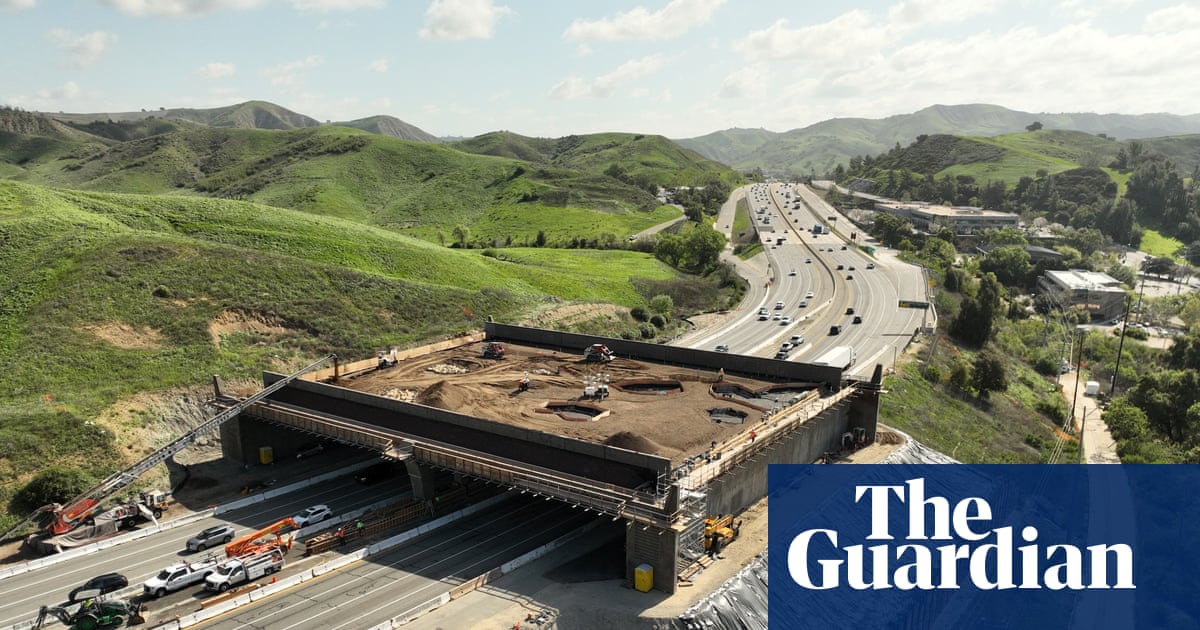The market reaction to Donald Trump’s announcement last Wednesday that he would be levying punitive tariffs on imports from the rest of the world was immediate: US stock markets experienced their worst single-day decline since Covid. The long-term implications will depend on how permanent Trump’s reshaping of the global economic order turns out to be. At the moment, his administration is sending contradictory signals as to whether these tariffs are here to stay, or whether they are intended to be used to in effect blackmail other countries into doing the bidding of the US. But the global recession they could trigger raises huge strategic headaches for a British government already struggling to square the fiscal circle and deliver its pledge to boost growth.
There is no logic to Trump’s trade populism: contrary to his claims, the US has done immensely well out of being the dominant economy in the global free trade system of recent decades. If Trump doesn’t change course quickly, his act of economic self-sabotage will reverberate around the world, harming not just Americans, but triggering increasing poverty in America’s poorer trading partners, generating even more of the global instability that has become synonymous with Trump’s presidency.
In the UK, much of the focus is on whether Keir Starmer will be able to negotiate a trade deal that reduces or even eliminates the 10% tariffs imposed on British exports to the US. While this goal is entirely legitimate, it comes with some nasty traps. Trump is unpredictable and self-interested when it comes to negotiations. That the UK has escaped relatively lightly compared with the EU, which faces 20% tariffs, or China, with 34%, is likely to be because of the formula Trump used to calculate tariffs, as opposed to any diplomatic strategy from the British government. The US has a trading surplus in goods with the UK, which accounts for the minimum baseline tariff being applied.
The direct impact of these tariffs, given our relatively limited volume of exports to the US compared with a closer market like the EU, will be painful for those exporters it affects hardest, but more manageable for the UK as a whole compared to some other countries. The biggest risk is a more macro one: first, that British producers will face competition from the UK being flooded with cheaper imports that would have been once been destined from the US, and second, that the global recession and ongoing trade war could trigger what would inevitably have a huge knock-on impact on British economic growth.
There is a risk that the Trump administration will make unsustainable or intolerable demands of the UK – such as lowering our regulatory standards, or lifting VAT on American imports – in exchange for a deal that might offer us little protection from the broader effects of a trade war. Such a deal could make it harder for us to do business with the EU, with whom we trade in far greater volume than with the US. Ministers cannot have too much riding on a potential deal with the US.
The bigger global consequences of a trade war – which no trade deal with the US can protect us from, even if one were to be forthcoming – raise two urgent questions for the government. The first is what it can do to reset our trading relationship with the EU, which remains our biggest and closest trading partner – that is more aligned with our regulatory standards. A stronger relationship with the EU will provide more economic resilience than a trade deal with the US and should be a priority.
The government has taken important steps to align with EU regulations through the Product Regulation and Metrology Bill, but there is no substitute for rejoining the customs union and single market in terms of eliminating trade barriers, and ministers should be working to achieve this as a longer term goal. An EU reset and a trade deal with the US may, or may not, be achievable at once: if there is a trade off between the two, economic good sense dictates that Starmer should look east to our more reliable European allies than across the Atlantic to Trump.
The second problem is what a global recession means for the chancellor’s fiscal arithmetic. Labour’s strategy to transform the country is entirely contingent on economic growth – promised during the election to revitalise the economy and generate the tax revenues needed to reduce rising rates of child poverty and improve Britain’s creaking public services and infrastructure.
But with the UK’s growth forecast slashed in the weeks before Trump’s tariff announcement, Rachel Reeves faced a choice between cutting spending, raising taxes or relaxing her fiscal rules to allow her to borrow more. She decided to cut disability benefits by several billion, a move that will only serve to increase disability and child poverty, instead of opting for alternative solutions that would have shared the burden more fairly, such as freezing income tax and national insurance thresholds for two years.
after newsletter promotion
That was an unacceptable political choice, and if the economic forecast worsens further – all while the UK needs to find increasing amounts for defence spending as the US resiles from its Nato commitments – there are going to be even more difficult tax, spending and borrowing choices ahead.
Labour must approach these guided by its progressive values rather than political expediency: those with the broadest shoulders should take more of the strain, even if it is less painful electorally to heap the costs on the already-struggling who have less clout at the ballot box.
This was always going to be a difficult few years for a Labour government: the British economy suffers from long-term structural issues, including low levels of investment and sluggish productivity growth that cannot be fixed in a few years. Starmer’s pledge to transform Britain’s growth prospects withinfive years was never realistic but Trump’s election has made a set of infelicitous circumstances far worse. We are living through a new age of sharp global insecurity characterised by damaging economic shocks and increasing levels of war and conflict. Starmer faces the greatest test of his premiership so far.

 21 hours ago
15
21 hours ago
15













































